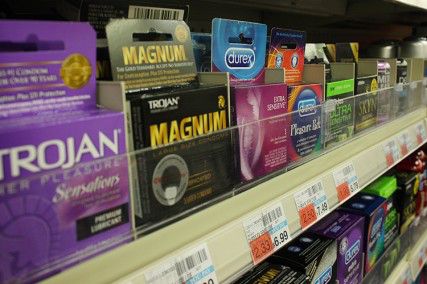
Boston University researchers will partner with medical professionals on a project seeking to develop a type of condom with a lower risk of breaking that still provides comfort, officials said.
The department of radiology at BU’s School of Medicine and Boston Medical Center won a $100,000 grant through the Bill & Melinda Gates Foundation’s Grand Challenges Explorations program, according to a Tuesday press release. BUSM professor Ducksoo Kim and third-year BUSM radiology resident Karen Buch will lead the project.
“We want to make the condom better,” Kim said. “We’re trying to make it more comfortable, more durable and better functioning.”
Researchers aim to develop a new type of nanoparticle polymer coating, called hydrophilic coating, for condoms that will reduce the risk of breakage, Kim said.
“We believe that by altering the mechanical forces experienced by the condom, we may ultimately be able to make a thinner condom which reduces friction, thereby reducing discomfort associated with friction [and] increases pleasure, thereby increasing condom use and decreases rates of unwanted pregnancy and infection transmission,” he said.
To develop this improved polymer coating, researchers are looking to work with faculty from basic science departments, Kim said.
“The coating retains water on the condom surface to reduce friction, tearing forces and condom breakage,” he said. “To date, there are no real successful hydrophilic condom coatings on the market with adequate consumer satisfaction.”
The improved coating will also incorporate anti-microbial and anti-retroviral agents that will help to prevent the spread of sexually transmitted diseases and infections, Kim said.
The Melinda and Bill Gates Foundation began its search for the Next Generation Condom in order to promote the use of contraceptives for the health and well being of the general population, Kim said.
“Currently, about 15 billion condoms are produced each year and there are an estimated 750 million users,” he said. “However, the major issue with condom usage is that men are reluctant to use it on a consistent basis because they think they can get more sexual pleasure without them.”
BUSM researchers were one of 11 research teams who received a Phase I grant to develop an improved condom. Depending on the success of the project, Kim said researchers at BUSM could receive up to $1,000,000 from the foundation.
Buch said she is thrilled to have gotten the grant and to start the project. She and Kim plan to commence their research within the next few weeks.
“It’s an honor to get the grant because it’s pretty rare — I think this is a great project with the potential to help so many people and it’d be really nice to start it now,” Buch said.
She said the project will help many, including but not limited to those with fewer financial resources.
“There are people in impoverished areas who cannot go out and afford multiple condoms or lubricant to go with their condoms,” Buch said. “This condom will have high durability — ones that last a long time.”
Instead of requiring users to purchase additional lubricant to use with the condoms, the condoms will be activated by water, she said.
“You apply water to the condom and it becomes very slick, extremely smooth and well-lubricated to the touch because it is binding water molecules to its outer coating,” Buch said. “So, there is no need for lubrication or a secondary lubricant.”
Buch said she is excited for her work to begin.
“For any research project you have this hope and this dream of what your project can become and I think that, for me, is the biggest personal stake and investment,” she said. “I really want to put something great out there, something that is new that hasn’t been done before.”
This is an account occasionally used by the Daily Free Press editors to post archived posts from previous iterations of the site or otherwise for special circumstance publications. See authorship info on the byline at the top of the page.



